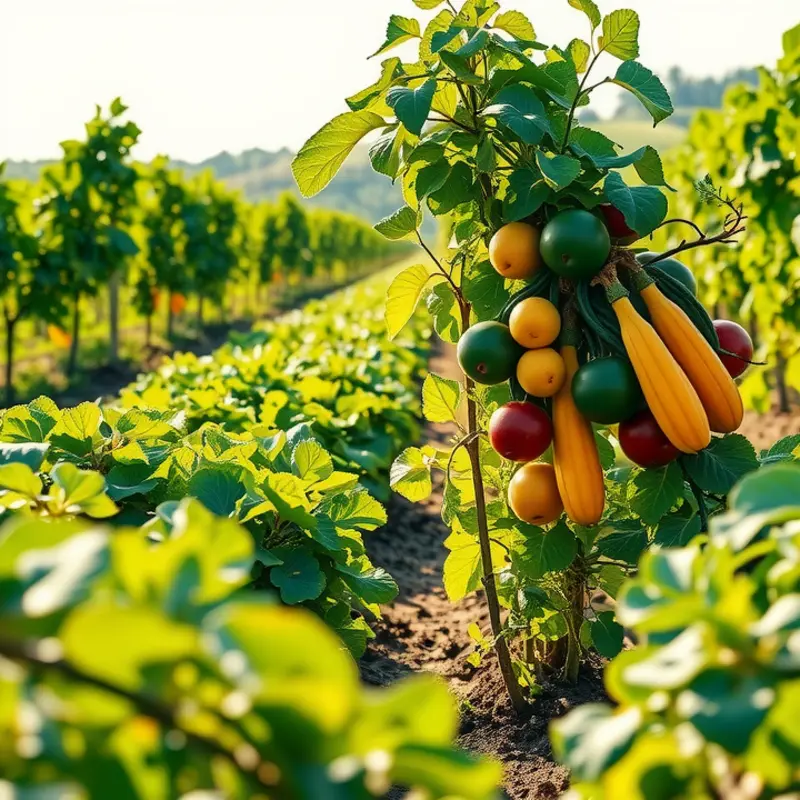Embracing an ethical diet goes beyond personal health; it’s about making choices that honor our planet. The idea is to consume food that is not only nutritious but also sustainable and kind to the environment. As climate concerns grow, individuals are seeking ways to contribute to planetary wellness through their food choices. This guide will illuminate practical tips for embarking on an ethical eating journey, making mindful decisions that support both personal health and eco-friendliness.
Understanding Sustainable Food Choices

An ethical diet begins with understanding how our food choices impact the environment and community. By adopting sustainable food practices, you can minimize ecological damage while supporting personal well-being. A fundamental approach to this is embracing organic, local, and seasonal eating.
Organic foods are grown without synthetic fertilizers or pesticides, fostering soil health and biodiversity. They reduce chemical runoff into waterways and limit exposure to harmful substances. Meanwhile, choosing local foods decreases the carbon footprint associated with transportation. Buying from local farmers supports the community and ensures freshness, which also benefits nutritional quality.
Eating seasonally means selecting fruits and vegetables that naturally ripen at a particular time of year within your region. This not only assures richer flavors but also reduces the resources needed for artificial growth and storage. Seasonal eating aligns with nature’s cycles, promoting ecological balance and often making meals more enjoyable and varied.
The journey towards sustainable choices involves keen awareness of food production’s environmental toll, particularly carbon emissions. The livestock sector is a significant contributor, accounting for greenhouse gas emissions due to feed production and methane generation. By modestly reducing meat intake, especially red meat, you can lower your diet’s carbon footprint significantly.
Transportation of food also plays a critical role. Air-freighted goods have a substantially higher environmental impact than sea or land-transported items. Opting for regional products cuts down on the massive fuel consumption associated with long-distance shipping. Exploring regional cuisines can also be an exciting culinary journey, allowing you to discover diverse flavors. For more insights into culinary influences and the benefits of utilizing local ingredients, check out our interpretation of culinary influences through trade.
With the rise of technology, various tools and certifications can assist in identifying sustainable options. Certifications such as organic, fair trade, and certified humane provide transparency regarding a product’s integrity and ethical standards. They ensure products are produced with minimal harm to workers, animals, and the environment. Applications and websites that offer insights into the carbon footprints and ethical scores of products can further guide you to make environmentally conscious choices.
Transitioning to sustainable eating is more accessible when broken down into manageable steps. Start small by incorporating locally sourced produce into your meals, gradually increasing the proportion of plant-based foods consumed. Home-cooked meals, especially those using eco-smart ingredients and methods, often have lower environmental impacts. Tapping into local farmers’ markets or community-supported agriculture can enrich your food journey and strengthen your connection with the growing seasons.
Navigating through the plethora of food choices requires intentionality and a commitment to routine habits. As you cultivate these habits, you contribute to a broader movement aimed at nourishing the planet. Ethical and sustainable eating promotes environmental health, personal wellness, and a thriving community, all of which are interwoven into the fabric of an ethical diet.
Implementing an Ethical Diet: Practical Tips

Transitioning to an ethical diet involves more than just swapping ingredients; it requires intentional planning and thoughtful sourcing. Begin by incorporating meal planning into your weekly routine. This not only ensures balanced nutrition but also reduces impulsive, less sustainable food choices. Opt for meals that use in-season produce, which are often fresher, more affordable, and have a smaller carbon footprint than out-of-season imports.
Sourcing food locally is a cornerstone of sustainable eating. Visit farmers’ markets or join a community-supported agriculture (CSA) program to get fresh, locally grown produce and reduce the need for long-distance transportation. When local produce isn’t available, choose items with minimal packaging to cut down on plastic waste. Consider brands that prioritize recyclable or biodegradable materials.
Choosing plant-based options reduces the environmental impact of your diet significantly. Incorporate a variety of vegetables, grains, and legumes as staples in your meals. If you’re unsure where to start, explore resources on easy plant-based eating for simple, enjoyable recipes.
Plastic waste is a critical environmental issue. Reduce reliance on single-use plastics by investing in reusable shopping bags, produce bags, and containers. If possible, purchase in bulk to minimize packaging waste. These steps collectively reduce the footprint of your diet.
Mindful eating plays a fundamental role in an ethical diet. Slow down and savor each bite, focusing on the flavors and textures of your food. This practice aids digestion and enhances satisfaction from meals, making it less tempting to overconsume.
Additionally, combatting food waste is an essential step. Keep track of food expiration dates and prioritize using ingredients that go bad sooner. Incorporate leftovers creatively into new meals, transforming them into delightful dishes. For tips on reducing waste during food prep, explore low-waste cooking techniques.
The shift to sustainable eating doesn’t have to be daunting. By adopting these strategies, you empower yourself to make choices that are both ethical and enjoyable, aligning personal values with daily habits for a healthier planet.
Final words
Transitioning to an ethical diet isn’t merely a personal choice; it’s a statement of intent towards a healthier planet. By understanding sustainable food choices and implementing practical steps, each individual can significantly impact environmental preservation. Start making mindful decisions today—choose local, organic, and plant-based whenever possible. Remember, every small effort contributes to a larger change. Together, through informed eating, we can promote a more sustainable food system and encourage others to join in this vital mission.








